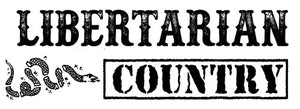Sowell deviates from standard textbooks by avoiding the use of graphs and jargon, thereby delivering a plain English guide to economics.
The wealth of knowledge Sowell provides is easily digestible, even for novice readers; such is the quest of the book.
From the ground up, Sowell walks his readers through the basics of economics, starting, quite naturally, at "what is economics?".
Sowell, again in plain English, covers the basics (to name a few); from prices, markets, economies of scale, inflation, deflation, booms, recessions, stocks, bonds, insurance, banking, market failures, market success, causes of international wealth disparities, as well as the cause and effect of government intervention or non-intervention.
What separates Sowell from other Chicago and Austrian School economists, for me, is his unique ability to hold your attention throughout the 700 page book. With historical references, stories, examples, quotations and contrasts with opposing economic viewpoints etc., the reader is certain to be kept entertained as well as informed.
If you told an average person that you stayed up until 2 a.m. because you couldn't put down an economics book, they probably wouldn't believe you. However, once you start reading this highly recommended book, you'll understand just how possible it is.
What I like about Sowell is that, even though he appears to be a strong proponent of free market economics, his support is not unconditional. Sowell confesses that the free market is not without imperfection.
This is an important feature.
These market imperfections are cracks in classical economic dogma that allows Keynesian economists to exploit the weaknesses in order to curry favor with skeptics of laissez-faire capitalism.
Rather than retreating to orthodoxy, it's imperative to note the weaknesses of free-market capitalism and attempt to formulate libertarian solutions, otherwise it becomes less appealing to larger audiences.
A well-rounded intellectual should, nay must, explore contrasting and opposing theory, ideology and thought. Case in point, Sowell's chapter on the 'History of Economics' that includes Keynesian economics, Classical Liberal as well as Socialist economic theory.
For those who subscribe to socialist/leftist economic thought, Sowell's 'Basic Economics' offers a heavyweight, albeit cut-and-dry, challenge to Marxian theory and is, thus, recommended as a refutation.
Conclusion
Whether you're an average person with an interest in economics or a Cambridge University intellectual elitist, Thomas Sowell's 'basic economics' is a valuable resource of economic truth as well as economic theory, written in terms that just about anyone can understand.
Sowell also includes a series of questions before the index of the book, allowing readers to test their newly acquired (or sustained) knowledge!
Level of Recommendation: Extremely High


